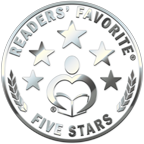Slippers. Masks. Midnight. Pumpkins. What could be more quintessentially “Cinderella”? The appearance of a fairy godmother, of course! 😀
Traditionally, a godmother–or godfather–was responsible for their godchild’s religious education. They would have been present at the child’s baptism, and essentially “sponsored” the child, particularly in regards to the local church. That role still exists today, but these days we also use the term much more secularly to mean anyone who guides or helps another from the shadows. It’s a sort of honorary family member. In fact, in many older retellings of Cinderella, her “fairy godmother” is actually a relative–usually a manifestation of her deceased mother. (Most memorably, it’s often her mother acting through a special tree planted over the gravesite.)
But when you add the idea of a fairy to that role of support, you get much more magic and sparkly transformations. And it’s not so strange to have interfering (ahem, wish-granting) fairies in folklore–just think of Sleeping Beauty or Pinocchio. In fairy tales, the fairies themselves are often a personification of luck or fate–or divine intervention, if you prefer.
This idea of a super-strength guardian is so appealing “fairy godmother” itself is now a phrase all on its own (just ask Merriam-Webster). Charles Perrault, a French writer centuries ago who helped popularize the story of Cinderella, ended his retelling with this moral:
Without doubt it is a great advantage to have intelligence, courage, good breeding, and common sense. These, and similar talents come only from heaven, and it is good to have them. However, even these may fail to bring you success, without the blessing of a godfather or a godmother.
Basically, everyone, no matter who they are, could use a little luck. 😉 This seems a fitting ending for our Cinderella series, celebrating the release of Cinders to Dust. I’ll see you next month with a new topic–provided luck is on my side, of course!
Selected Sources
You can get further info on godparents simply by searching the internet; you’ll find tons of advice articles and historical dictionary entries! Perrault’s quote came from “Cinderella; or, The Little Glass Slipper,” which you can find online here.
Psst! Could you use a little help?
I’ve added coaching, research assistance, and classes to my offerings! Check out my author services and group workshops. It may be a tough, dark world out there, but together we can share some light.







A (Digital) Penny for Your Thoughts!